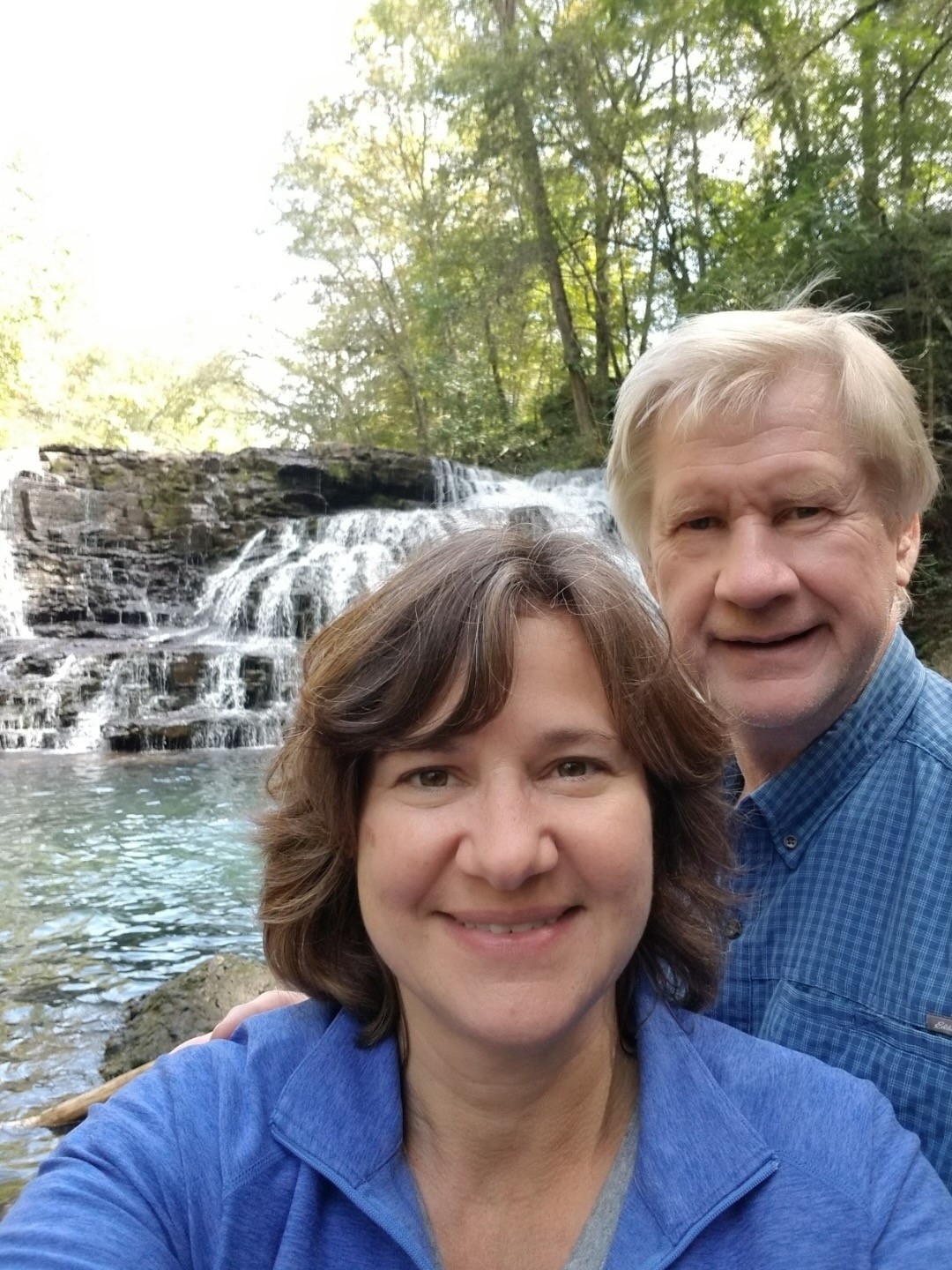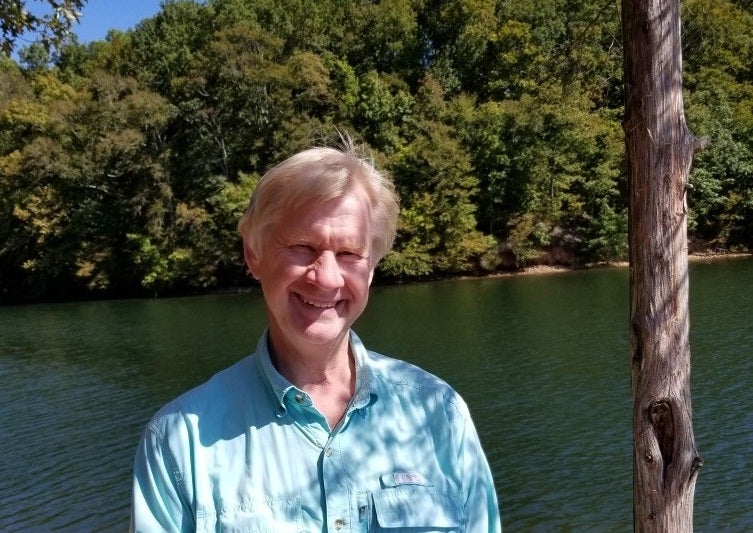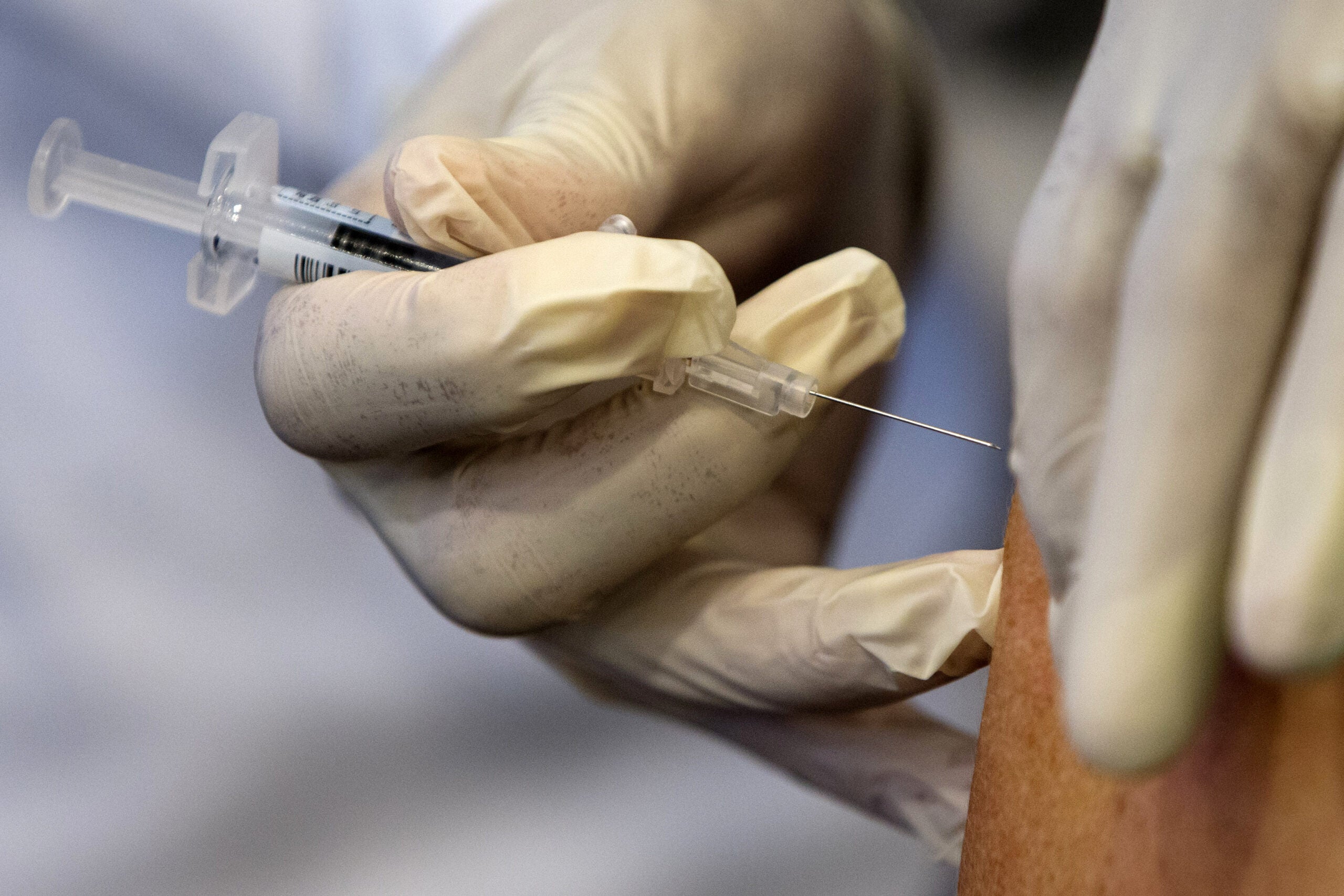Jim Harju was healthy and active before he became sick with COVID-19 this summer.
His wife Geri Lynn Harju had talked with him about getting vaccinated against the illness but couldn’t change his feelings, she said. He’d always been hesitant about interacting with the health care system. Then Jim started feeling unwell in late July.
“He just got sick really, really fast,” Geri Lynn said.
News with a little more humanity
WPR’s “Wisconsin Today” newsletter keeps you connected to the state you love without feeling overwhelmed. No paywall. No agenda. No corporate filter.
Jim was in the hospital for 47 days. The couple kept in touch through text messages for much of that time. The first two weeks of isolation were horrible, and then Jim needed to be put on a ventilator, Geri Lynn said. At times, he experienced a lot of discomfort, she said.
“Jim was a really healthy guy before (COVID-19.) He’s a farmer and an engineer,” she said. “Up until he got sick, he was doing all his farm work, all his gardens. He grew organic crops. He was very, very healthy. To know that this virus could take 90 percent of his lung function away was just really unbelievable.”
Jim usually donated a large portion of his harvest to a food pantry in Green Bay. Geri Lynn continued that tradition this year after he died from the virus. And now, she and others impacted by the pandemic are asking their neighbors in northeast Wisconsin to take precautions against COVID-19 this holiday season.
People should listen to medical experts, Geri Lynn said. Jim wished he’d been vaccinated, and he believed God would use his story to encourage others to get their shots, she said.

Wisconsin is seeing higher rates of COVID-19 infections than it has at any point this year — with the omicron variant threatening to exacerbate the problem. Currently, many of the most serious cases are among the unvaccinated, said Brown County public health strategist Claire Paprocki.
Between 95 and 100 percent of patients in the region’s COVID-19 intensive care units typically haven’t received the vaccine, she said. Usually between 70 and 80 percent of northeast Wisconsin’s hospitalized COVID-19 patients are unvaccinated.
Like Geri Lynn, De Pere Mayor James Boyd also shared his experience with COVID-19 in hopes of encouraging Wisconsin residents to take precautions against the virus. He contracted the virus about 16 months ago, and he still hasn’t fully regained his senses of taste and smell. He still feels other effects of the illness like chest and lung pain.
“Every day I wake up hoping that it’s gone, and then every day I wake up, and I’m disappointed,” Boyd said.
He’s since received the COVID-19 vaccine and a booster shot. New data from Epic Health Research Network shows vaccinated patients are significantly less likely to become reinfected with the virus.
According to the state Department of Health Services, 57 percent of Wisconsin residents are fully vaccinated against COVID-19. Now the agency is encouraging adults to receive their boosters, too. But officials don’t want people to abandon other precautions like wearing masks and social distancing, especially during crowded settings.
Meagan Roberts has been careful throughout the pandemic, and she and her partner are vaccinated, she said. He tested negative for COVID-19 after experiencing symptoms of a head cold this fall. That’s why the Green Bay couple didn’t think much of it when he felt some of those same symptoms around Thanksgiving. They went to visit Roberts’ family for the holiday.
Then Roberts, who hadn’t received her booster yet, started to feel poorly the Saturday after Thanksgiving — her head and body ached, and her throat felt like it was on fire, she said. A test confirmed she and her partner had COVID-19. She was really sick for a week and struggled with shortness of breath. But the worst part was having to call her family to inform them they’d been exposed to the virus. She felt a lot of guilt, she said.
About half of those gathered for Thanksgiving got sick despite being vaccinated. Some of them had significant symptoms, but none were hospitalized, Roberts said.
Her message to her neighbors: Don’t let your guard down.
Wisconsin Public Radio, © Copyright 2025, Board of Regents of the University of Wisconsin System and Wisconsin Educational Communications Board.







